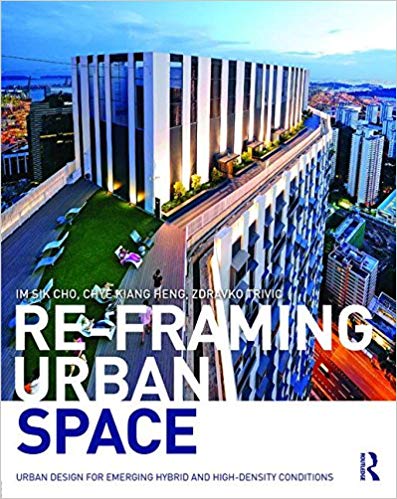
Re-framing Urban Space: Urban Design for Emerging Hybrid and High-Density Conditions rethinks the role and meaning of urban spaces through current trends and challenges in urban development. In emerging dense, hybrid, complex and dynamic urban conditions, public urban space is not only a precious and contested commodity, but also one of the key vehicles for achieving socially, environmentally and economically sustainable urban living. Past research has been predominantly focused on familiar models of urban space, such as squares, plazas, streets, parks and arcades, without consistent and clear rules on what constitutes good urban space, let alone what constitutes good urban space in ‘high-density context’.
Through an innovative and integrative research framework, Re-Framing Urban Space guides the assessment, planning, design and re-design of urban spaces at various stages of the decision-making process, facilitating an understanding of how enduring qualities are expressed and negotiated through design measures in high-density urban environments. This book explores over 50 best practice case studies of recent urban design projects in high-density contexts, including Singapore, Beijing, Tokyo, New York, and Rotterdam.
Visually compelling and insightful, Re-Framing Urban Space provides a comprehensive and accessible means to understand the critical properties that shape new urban spaces, illustrating key design components and principles. An invaluable guide to the stages of urban design, planning, policy and decision making, this book is essential reading for urban design and planning professionals, academics and students interested in public spaces within high-density urban development.